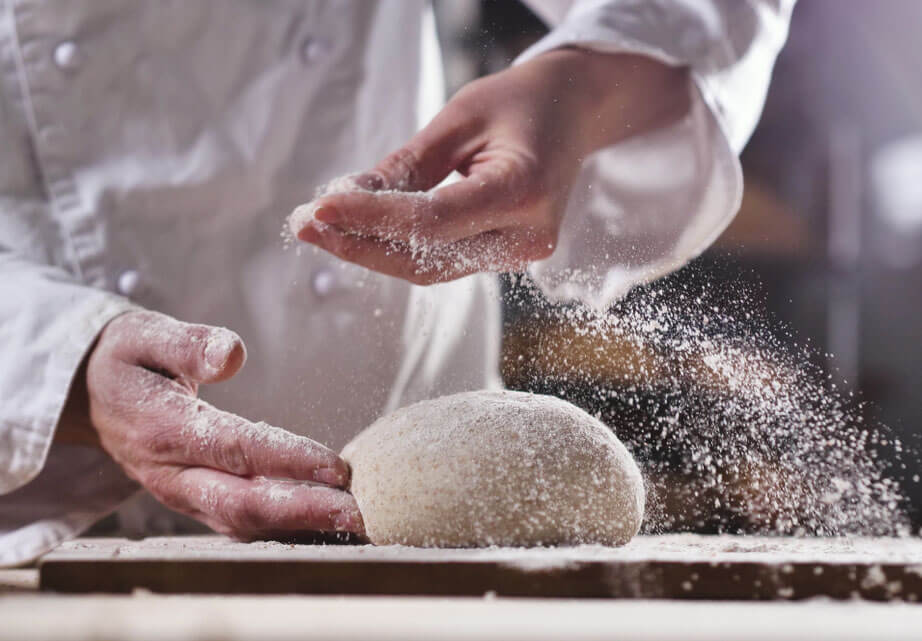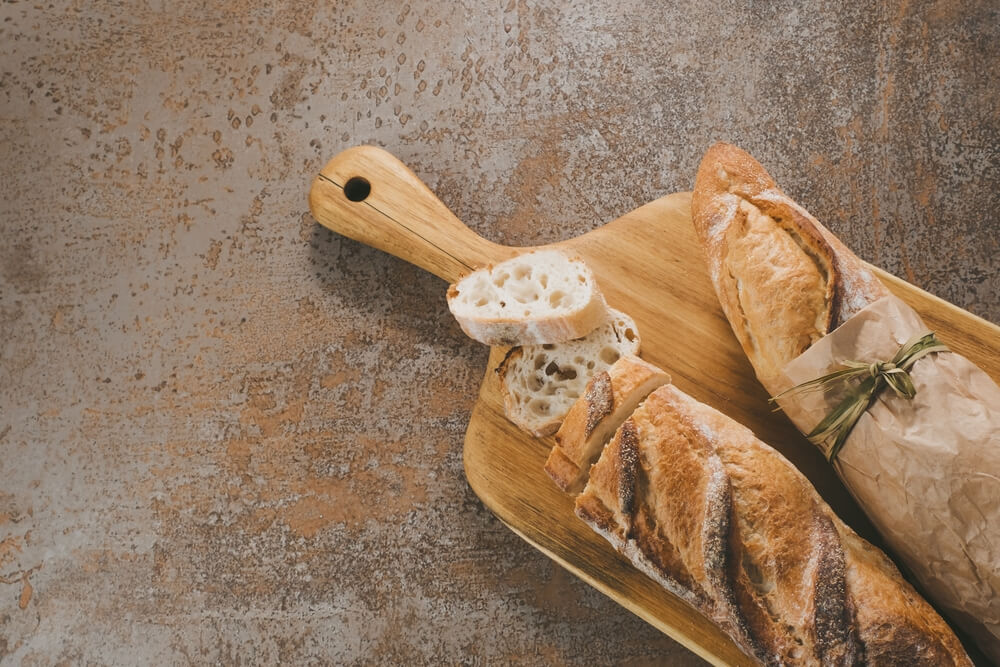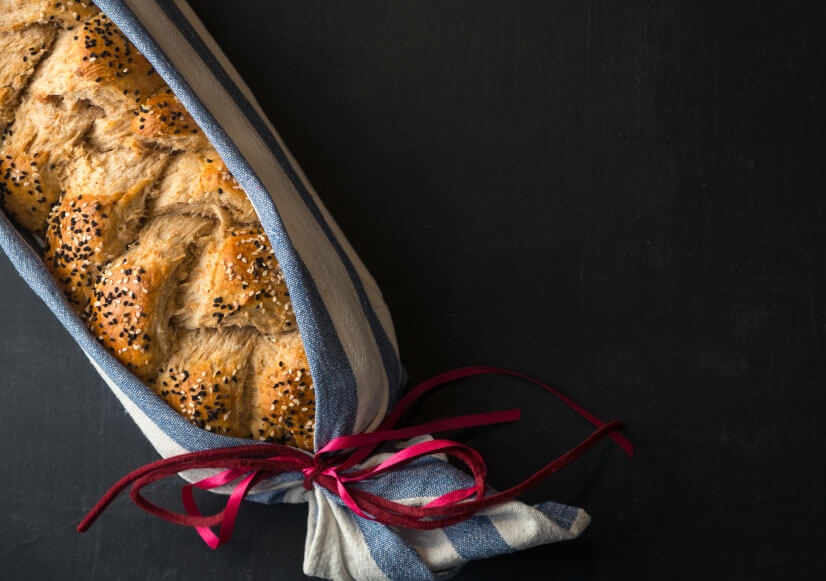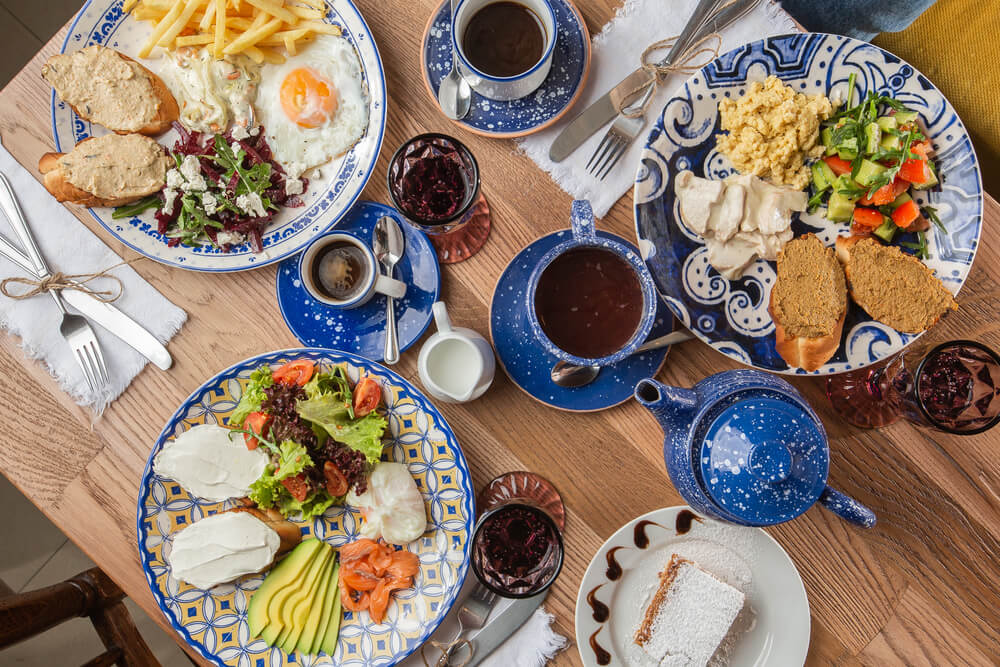From anxious newcomers to seasoned professionals, it’s a question that has been asked in kitchens all over the world – what type of flour to use for sourdough bread?
Long gone are the days when you simply chose between the white and whole wheat options on the shelf. Now, you can find every type of flour for sourdough starter baking, such as white, whole wheat, organic and stoneground flour. Naturally, you won’t find a bag labelled, ‘Sourdough Starter Bread Flour’ to begin with, because the options you select should be based on what you are trying to achieve.
With patience, attention and experimentation, your creations will come to life in a variety of different forms; you will steadily find that the choice of flour dictates the taste and texture, not to mention the health benefits of sourdough bread in your diet!
Sourdough Starter Bread Flour
If you’re searching for an option to begin with, again, there is no easy way to say which is the best type of flour for sourdough bread. For complete beginners, however, standard organic white bread flour made from hard wheat is a great option. To kick off your journey, this is the sourdough starter bread flour you’re searching for as it will give you the easiest and most dependable gluten development, be the simplest to knead and shape, and it will often give the best rise in the oven.
When teaching yourself, this is the preferred option, but learning about the different flours and their effects on a bake can be useful to making the best sourdough bread. Once you have nailed the basics of making your own sourdough bread, you can start experimenting with the different flours to find which one works best for you!
The Best Flour for Sourdough Bread
Organic vs. Non-Organic Flour – Which Type of Flour Should You Use?
The primary nutrients needed for the bake are water, starch, and protein, so organic flour is technically not necessary to make a successful sourdough. However, natural, organic, wild-caught yeasts play a large role in the bake, making it a natural choice to use where possible, as it is chemical-free and generally better for your health.
In comparison, non-organic flours are often bleached, which involves chemical treatments to whiten and age them, affecting the yeasts and the way they react in the sourdough recipe.
When thinking of the end product, non-organic flour can produce a less flavourful loaf, but still offer a good rise and structure. The starter itself may seem less active than its organic counterpart, however it can still produce a successful and satisfying bread.
Using organic flour in your bake can produce a much more complex flavour profile, with a visibly active starter and exceptional rise. The science behind the comparisons between organic and non-organic flours is that organic flour has a different mineral content, without added chemicals, so when it ferments, it has a more natural and diverse range of flavours than the non-organic wheat flour.
While there are pros and cons to both the organic and non-organic type of flour, you shouldn’t worry too much about your choice if you are on a budget, or unable to source one flour over the other. As long as you make the effort to feed your starter with the best sourdough bread flour you can, it should be strong enough to still bake excellent bread, whichever flour you use for the rest of your bake.
Whole Wheat vs. White Flour
Both whole wheat and white bread flour for sourdough are a viable type of flour for sourdough, however using whole wheat bread flour will have a big impact to the flavour and texture of the bread.
This is because whole wheat flour contains the entire grain of wheat, which is important for flavour as it helps gluten development and provides a rich source of vitamins and healthy fats. In contrast, white bread flour contains much less of the grain of wheat, impacting the flavours and removing some of the nutritional value.
Using whole wheat bread flour, and the range of minerals it contains, the bread you bake will have a more complex flavour profile, as well as a more dense and heavily textured bread. Alternatively, white bread flour will produce a lighter, softer textured bread, as well as a milder, more simple flavour range.
Depending on your personal preferences, both flours have their highs and lows. Without a doubt, the more wholemeal you have in your sourdough, the denser it will be, yet packed with flavours. By knowing the different impacts of both whole wheat and white bread flour, you will be able to experiment with the different ratios and amounts of flour to produce the best loaf that is exactly to your tastes.
Stoneground vs. Regular Flour
Stoneground is a type of flour that refers to the traditional way that bread flour was milled before industrialisation. It involves two large stones grinding the wheat until it is reduced to flour. This process creates a whole wheat flour that is coarser in texture, which is then sifted to remove some of the bran and produce a white flour.
Today, the majority of flour is roller milled, which is a faster way of processing wheat to give a finer, more consistent texture to the flour. This produces a type of white flour, which then has some of the crushed and processed bran reintroduced to make a whole wheat flour.
Due to it containing more nutrients and the nature of its production, stoneground flour is generally considered to be the best type of flour for your health. The bran in the wheat that offers these health benefits also adds to the production of a more flavoursome sourdough. Depending on your preferences, this strong taste can simply be a positive or negative outcome. As stoneground flour is not as fine in its texture, it can also mean that the type of dough is more difficult to handle, particularly for new bakers.
Ready, Set…Sourdough!
Now that you know more about the different types of flour and have a better idea of how you want to your sourdough to look and, more importantly, taste, it’s time to roll out the dough and get baking! To add to your baking experience, check out our products and get quality equipment such as quality bread baking trays to help you get the best out of your bread.
For more tips or advice on how to bake beautiful sourdough, contact our Banneton Man team and we’ll help you to find the best flour for your sourdough bread.
Today, the majority of flour is roller milled, which is a faster way of processing





